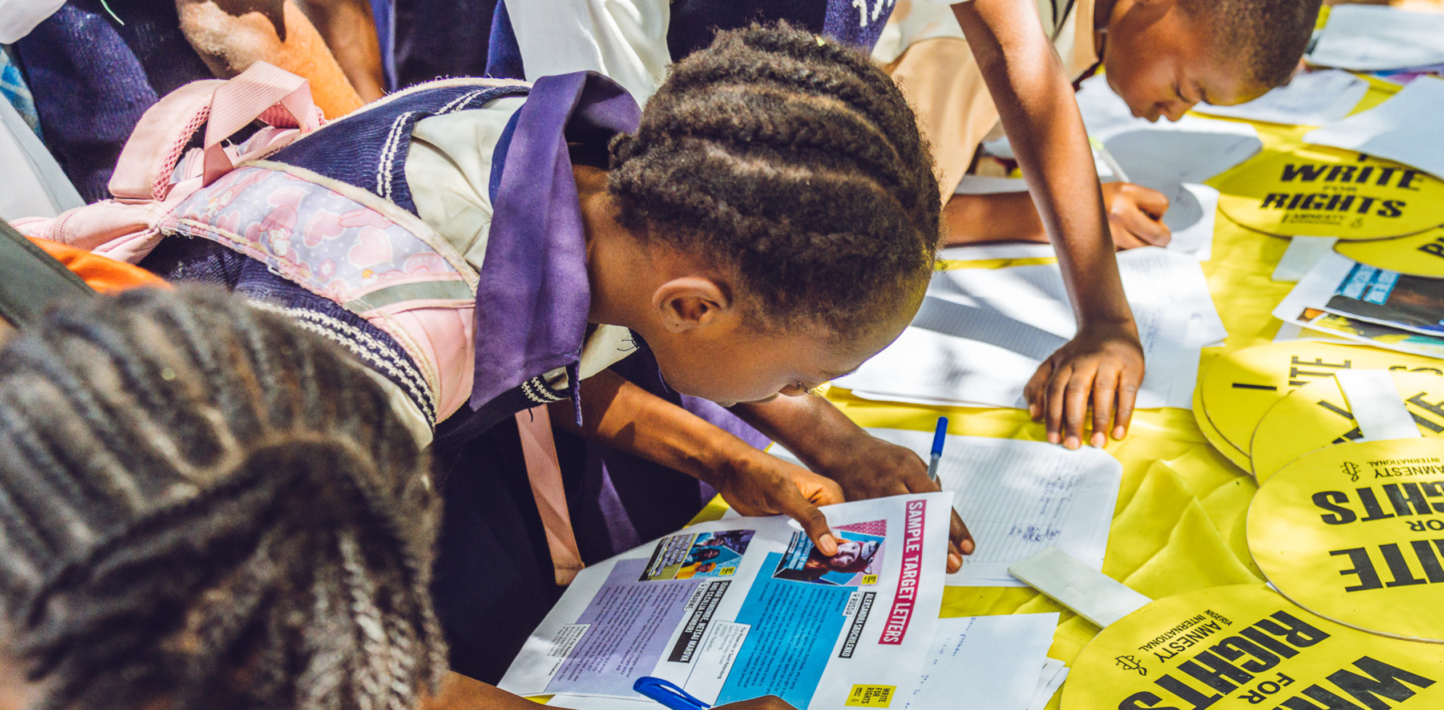Back in 2001, a group of friends from Warsaw, Poland, decided to celebrate Human Rights Day by holding a 24-hour letter-writing marathon. Over the course of the day, they managed to write more than 2,000 letters on behalf of individuals whose rights were being denied by various state authorities. No mean feat.
Fast forward 21 years and the idea conceived by those friends has spawned something they couldn’t possibly have envisaged. Each year, more people in more countries also started to write letters. Today, what’s now known as Write for Rights has become the world’s biggest human rights event. In 2021 alone, more than 4.5 million actions—including letters, emails, tweets and petition signatures—were taken across over 200 countries and territories.
The event’s staggering growth and enduring appeal rests upon a simple but powerful idea that has been central to Amnesty International since its foundation in 1961: when enough people come together to oppose injustice, using only the power of words, authorities do listen, and change does happen.
It’s a principle that’s been proven time and again.
Since its inception, Write for Rights has transformed the lives of more than 100 people, freeing them from torture, harassment, or unjust imprisonment. Recent examples include Bernardo Caal Xol, an environmental activist from Guatemala who was freed this year after being jailed on bogus charges; Magai Matiop Ngong, released in March after being sentenced to death at just 15 years old in South Sudan; and Burundian human rights defender Germain Rukuki, released in 2021 four years into a 32-year prison sentence.
The event is a testament to the power of activism and collective action. So, in a year punctuated by mass protests and violent crackdowns, it’s only fitting that Write for Rights 2022 is speaking up for those who have paid a heavy price for speaking out.
From Iran and China to Cuba and Sri Lanka, the last 12 months has seen people across the globe loudly assert their right to peaceful protest. We’ve witnessed iconic acts of defiance, including Afghan women taking to the streets to protest Taliban rule and Iranian women posting videos of themselves cutting their hair in protest against the country’s abusive and forced veiling laws.
Almost without exception, this wave of mass protest has been met with obstructive, repressive and often violent responses by state authorities.
The escalating global threat to the right to protest is one of the key human right battlegrounds of our time. Over recent decades, issues including the environmental crisis, growing inequality and threats to livelihoods, systemic racism and gender-based violence have made collective action ever more necessary. They have given rise to some of the biggest protest mobilizations seen for decades. Groups including Black Lives Matter, MeToo, and climate change movements have inspired millions the world over to take to the streets and online.
Across the globe, governments of every stripe have responded by implementing an expanding array of repressive measures. Protesters everywhere are facing a potent mix of pushbacks, with a growing number of laws and other measures to restrict the right to protest; excessive use of force, the expansion of unlawful mass and targeted surveillance; internet shutdowns and online censorship; and abuse and stigmatization.
Reflecting the universal nature of this threat, Write for Rights 2022 is campaigning for 13 individuals from every region of the world who have suffered as a result of repression. They include a lawyer from Hong Kong jailed for encouraging people to light candles to commemorate the Tiananmen Square crackdown; an Iranian man jailed and tortured for peacefully protesting against inequality and political repression who has been held in solitary confinement for more than two years; and three Zimbabwean activists who were abducted, beaten, sexually assaulted and jailed because of their activism.
Writing a letter, sending a tweet, signing a petition. Surely you can’t change the world with something so simple? Yes, you can!
______________________________
For more information about Amnesty International’s Protest the Protest campaign, see here


